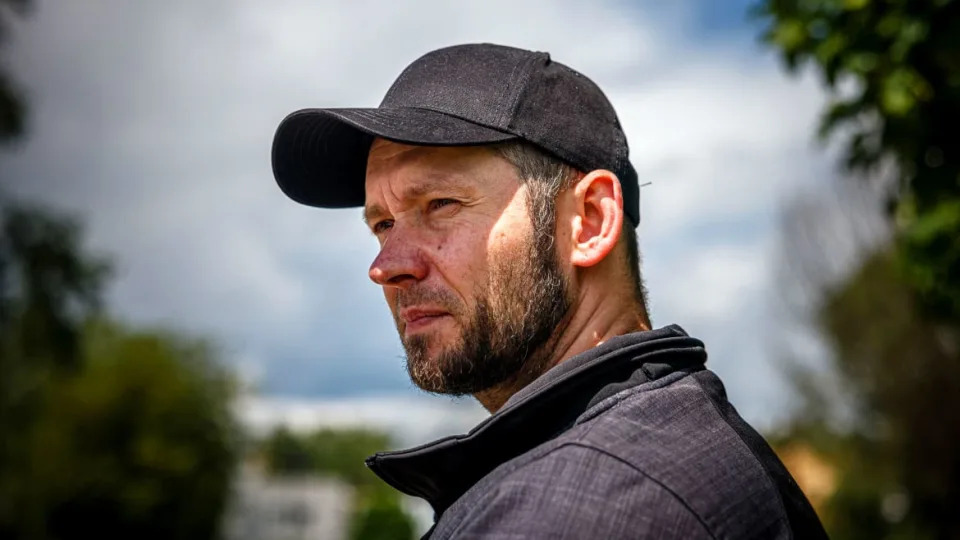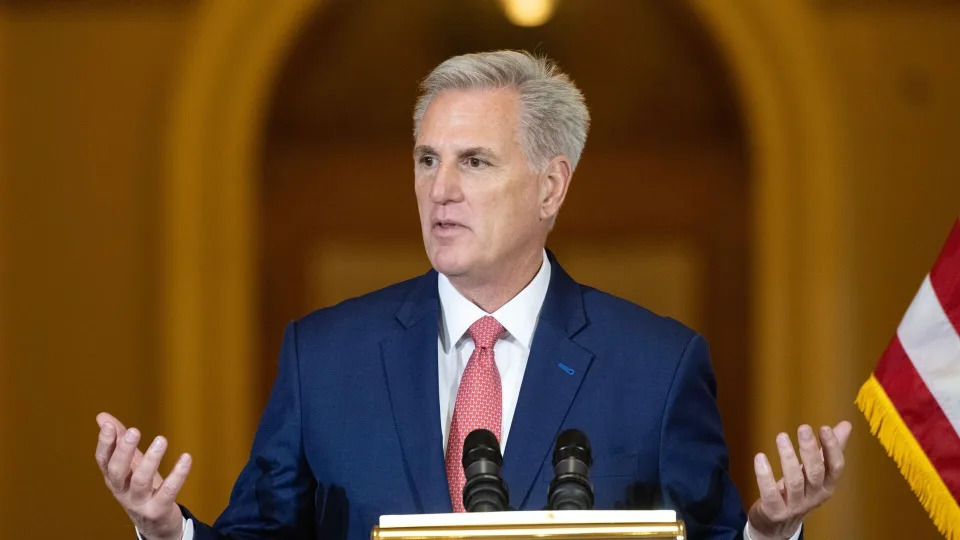Daily Beast
How Chernobyl Workers Defeated the Russian Army
Dan Ladden-Hall – July 2, 2023

When Russia’s full-scale invasion of Ukraine began, soldiers entered the country by crossing the northern border from Belarus. Their sights were set on capturing Kyiv, around 60 miles south.
Standing between them and the capital, however, was the ruins of the Chernobyl Nuclear Power Plant and its surrounding exclusion zone, a heavily restricted 1,000 square-mile area poisoned by radiation. Undeterred, the Russian forces moved in and captured the decommissioned plant on the very first day of the invasion. Five weeks later, even as the horrors of the war raged throughout Ukraine, Russian forces quit the plant.
Ever since the plant’s No. 4 reactor exploded in April 1986—to this day, the worst nuclear power accident the world has ever seen—the site has been meticulously managed by generations of workers to mitigate the ongoing threat the area poses to the public. Their critical work could not stop when the Russian tanks and troops arrived on Feb. 24, 2022.
A new film featuring the worker’s testimonies tells how, under incredible strain, they used their expertise and manipulation against Russian occupiers until the soldiers were finally forced to leave.
“Never before in history has a nuclear power plant been taken over by a hostile army. This is something that’s unprecedented,” Oleksiy Radynski, a Kyiv-based documentarian, told The Daily Beast. “And also, no one was prepared for this because people assumed that everyone is a little bit civilized and you don’t do this. You don’t do something that can really lead to a global disaster of like unspoken proportions. But the Russians did it.”

Radynski is part of The Reckoning Project, a team of journalists and researchers documenting Russian war crimes in Ukraine to build a body of evidence for eventual prosecutions. One such war crime was the occupation of Chernobyl, which Radynski explored through testimony of those who were forced to work and live alongside Russian forces as they moved in and shocked the world by turning the site into a military base. He also made a documentary film, Chernobyl 22, using footage from interviews conducted after the occupation of the plant ended on March 31, 2022.
Radynski’s connection to the area is personal, having been one of tens of thousands of children evacuated from Kyiv following the disaster at the plant 37 years ago when he was just two years old. The meltdown, created by human error, and its aftermath are among Radynski’s earliest childhood memories. It was unthinkable, he says, that the security of Chernobyl would be risked by a military operation of any kind, right up until the moment it happened.
“They had security protocols for literally any kind of disaster, like a natural disaster or a terrorist attack for example, but not for an invading army coming in with tanks and heavy artillery and so on,” Radynski said of the plant workers. “So they had to improvise. I think they did something really, really amazing. The resolve of these people is also just unimaginable.”
The plant’s capture immediately sparked international condemnation and concern. Those fears were exacerbated when monitoring stations at the plant recorded a huge spike in radiation levels on the day Russian forces arrived as military vehicles disturbed contaminated soil as they plowed across the exclusion zone. The risks were real. But the Ukrainian workers realized they could use the fear of those risks to their advantage, Radynski says, by exacerbating the fear of radiation among Russian commanders.
A Terrifying Secret in Putin’s War Is Now Impossible to Hide
“What the Ukrainian personnel at the plant—I mean the senior personnel—did, was they said: ‘If you want to survive, this place is very dangerous,’” Radynski says. “‘If you think you have taken over the nuclear power plant you are wrong. This is not really a nuclear power plant, this is a decommissioned and post-disaster nuclear plant. It’s something completely different and if you want to survive here you have to follow Ukrainian laws on radiation safety.’”
“This was of course true, but this was also a bit of manipulation, because along with these basic radiation safety rules they also started to impose on the Russians,” Radynski says. In one incident, on March 9, the plant suffered a blackout due to power lines being damaged in fighting elsewhere. The workers at the plant convinced the Russians to give them fuel for diesel generators, arguing that a complete loss of power could lead to catastrophic consequences. The plant’s Supervising Electrician, Oleksiy Shelestiy, says in Radynski’s film that staff joked among themselves that, in their own way, they were helping Ukraine’s armed forces by diverting tons of fuel to Chernobyl and away from Russian tanks.

The daily reality for those who did have to remain working in the decommissioned plant throughout the occupation was nevertheless perilous and draining. “They didn’t have proper sleep,” Radynski says. “They didn’t have proper rest. They were completely exhausted—they could make a mistake of any kind at any moment. They could do something wrong at the plant. So this was also extremely dangerous. Some of them spent even more than 25 days of nonstop working there.”
When they could sleep, many had to do so in the same areas as the Russians. Of course, the danger of the situation in Chernobyl affected the invading troops too.
One particularly bizarre example of the recklessness shown by Russia throughout the occupation is where they chose to dig their fortifications. One of the sites was in the Red Forest—the wooded area near the plant named for the rubescent shade its pine trees turned after being exposed to large amounts of radiation during the 1986 disaster. As part of the clean-up operation, authorities decided to bulldoze the forest and bury its contaminated trees in trenches.

“They dug fortifications in this area, which is actually not a forest, but the forest is below ground,” Radynski says. “The most contaminated materials are below ground. So you shouldn’t really walk there, but one thing you definitely should not do is dig there.”
In the course of his interviews, Radynski says he learned this extremely hazardous decision may not have simply been down to Russian commanders’ negligence of their own soldiers’ wellbeing. “The Russian generals who were taking over the plant, they were kind of boasting to the staff that they know their plant really well because in Russia they have an identical plant,” Radynski says.
Kremlin Wants to Purge Prigozhin Loyalists From Key Wagner Roles
That twin plant, Radynski says, is the Kursk Nuclear Power Plant in western Russia—a Soviet plant built in the 1970s which is so structurally similar to Chernobyl that it’s been used as a stand-in for its Ukrainian double as a filming location.
“They were saying that they were planning and rehearsing this takeover in that nuclear power plant in Kursk,” Radynski said of the Russian commanders. “But of course there is one thing that they didn’t take into account probably—is that the power plant in Kursk is really identical in every way with one exception: it’s not contaminated.”
The extent of the damage to Russian soldiers exposed to potentially dangerous doses of radiation remains unclear. Reports claimed some required treatment for radiation sickness in Belarus, while one witness in the documentary claims workers saw Russian men “evacuated on buses full of people vomiting.” Another said Chernobyl’s cooks had to warn Russians who had shot and skinned a moose that eating the animal—where wild fauna graze on the contaminated fauna—might be a bad idea.

When the Russians withdrew, Ukraine’s Defense Ministry cited losses incurred at the hands of its armed forces and “radiation exposure” as key reasons for the departure, taking the opportunity to mock Russian “mutants” on their way out.
The occupation nevertheless had serious consequences for the ongoing safety of Chernobyl. As the Russians left, large amounts of property was either destroyed or stolen—one estimate suggested around $1 million of property was looted—including everything from technical equipment to teapots. “It’s just lucky that a lot of really vital equipment is just too large to be squeezed into a tank or a military bus,” Radynski says. The area has also been heavily mined, a small part of a national scourge which has reportedly seen an area the size of Florida in Ukraine infested with explosives.
Arguably the most troubling of all the consequences for the workers, Radynski says, is the now ever-present sense of insecurity that comes with the fear that the Russians could return. Once unimaginable, the cavalier attitude toward nuclear safety in Ukraine has remained constant since Chernobyl’s occupation. On Thursday, Ukrainian emergency workers even took part in drills to prepare for a possible radiation leak at the Zaporizhzhia Nuclear Power Plant—Europe’s largest—amid alarming reports that Moscow is preparing such a plot at the site. Like Chernobyl, the southwestern Zaporizhzhia plant was captured by Russian forces early in the war—but the occupiers are still in control there to this day.
For Radynski, the fact that the Chernobyl plant is back under Ukrainian control is in itself a remarkable testament to the fortitude of those workers who stoically carried out their duties in the face of unparalleled danger. “There has been many stories of Russian military defeats during this war—I hope there will be more,” he says. “But most of the stories of Russian defeats that we know of, they come from the Ukrainian Army.”
In this case, however, it was Ukrainian workers who won out. The Russians in Chernobyl “were defeated by the power of Ukrainian kafkaesque bureaucracy,” Radynski says, as the staff found a way to “swallow them into this kind of swamp of radiation protocols.” Protocols, he notes, which they didn’t follow anyway.
In the documentary, a physical protection engineer at Chernobyl describes an exchange with a Russian energy official who kept tabs on the plant’s staff fearing they might intentionally trigger some kind of nuclear disaster. “‘I don’t care about your armed thugs,’” Vitaliy Popov says he told the official. “‘Our guys will take care of them. As for me, I actually came here to stop 1986 from happening again.’ I told him: ‘I will accomplish my task.’”






